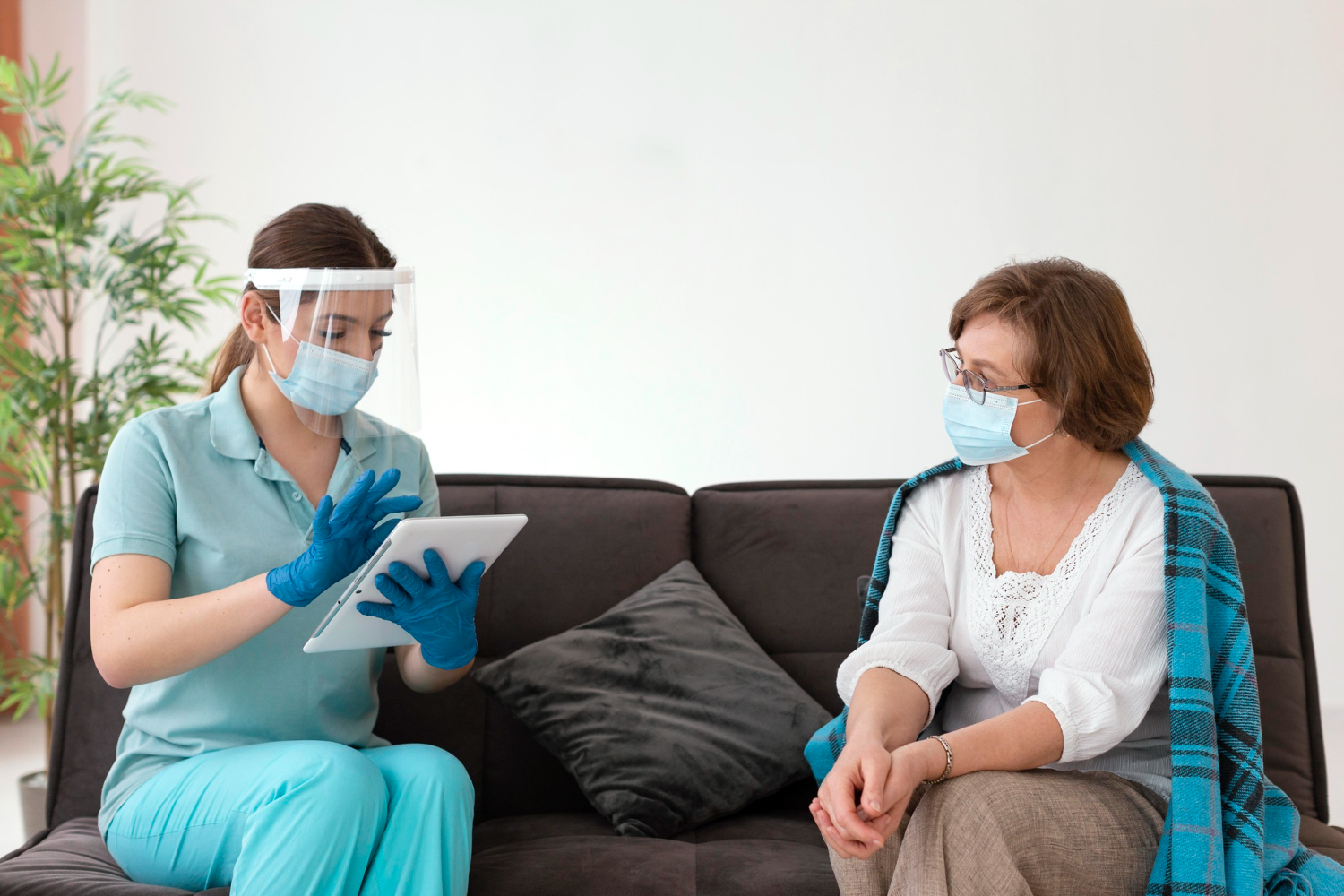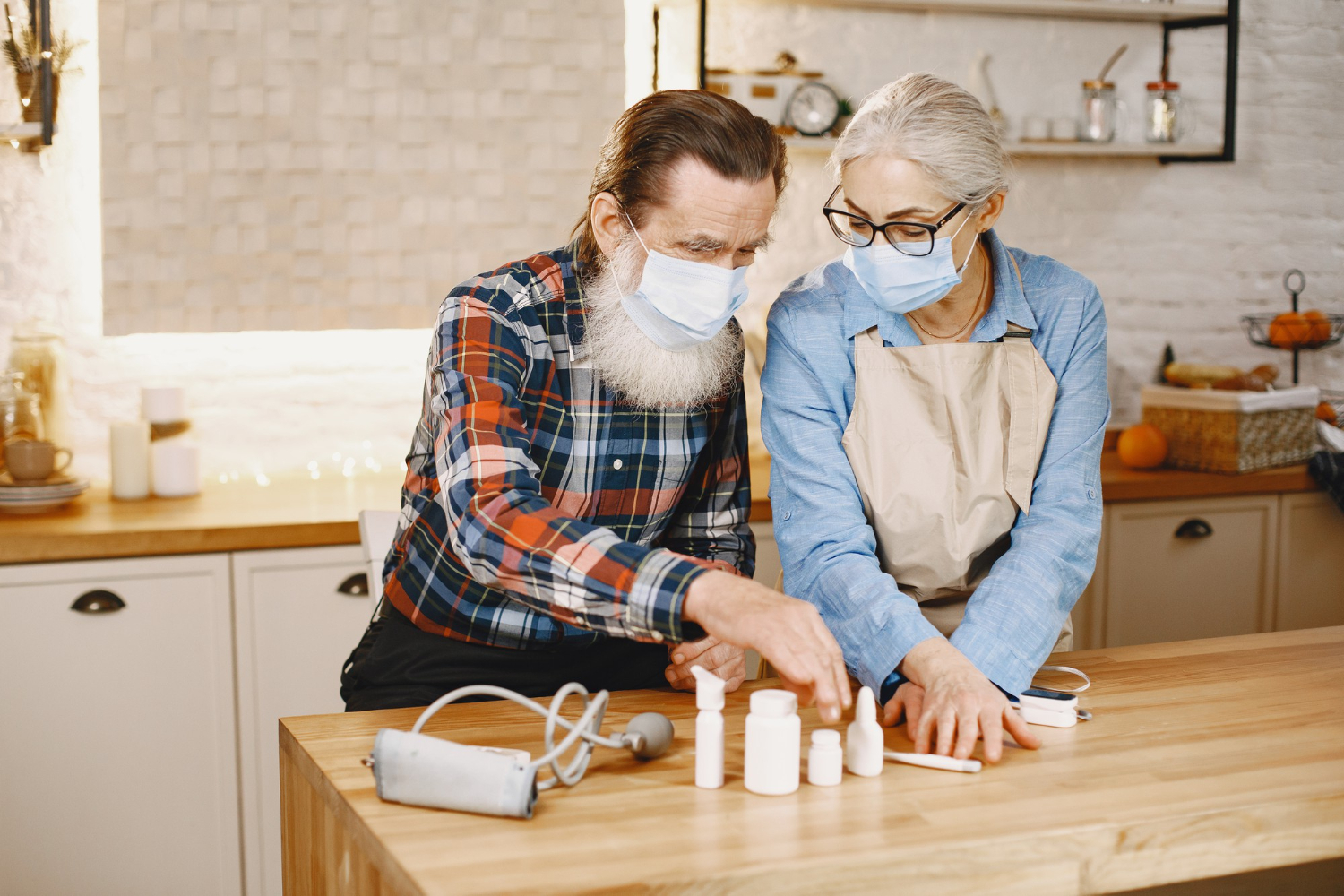Best Practices for Infection Control in Home Care

When you or someone you care about receives home care, one of the biggest concerns is staying safe from infections. Germs are sneaky little things—often invisible but powerful enough to cause serious illness if left unchecked. That is why infection control is not just another box to tick; it is a daily responsibility for everyone involved in home care.
Whether you are helping an aging parent, recovering from surgery, or managing a long-term condition, understanding how to keep your home environment clean and healthy makes all the difference.
This guide will help you understand what infection control means, why it matters in home care, and how you can put best practices in place to protect yourself and your loved ones.
What Infection Control Means in Home Care
Infection control is all about preventing the spread of germs—bacteria, viruses, and fungi—that can cause illness. In a home care setting, where caregivers often assist with personal care, wound dressing, medication, or therapy, infection control becomes even more important.
You may think hospitals are the main places where infection risks are high. However, germs can easily spread in homes too, especially if someone is sick, has a weak immune system, or requires medical support such as catheters, injections, or feeding tubes.
In Australia, home care services like AktRapid follow strict safety standards to protect clients, caregivers, and families. These standards are based on evidence-backed practices that help stop infections before they start.

Why Infection Control Matters
If you have ever had a simple cold spread through your household, you know how quickly germs move. Now picture that happening to someone whose health is already fragile. Infection control in home care is not about fear; it is about prevention, comfort, and peace of mind.
Here are a few key reasons it matters:
- Protects your loved one: Seniors and people with chronic illnesses often have weaker immune systems. Simple infections can lead to serious complications.
- Keeps caregivers healthy: When caregivers stay healthy, care remains consistent.
- Prevents hospital visits: Effective infection control can help avoid hospital admissions caused by preventable infections.
- Creates confidence at home: A clean and safe environment helps everyone feel more at ease.
Hand Hygiene: The First Line of Defense
If infection control were a castle, hand hygiene would be its front gate. Clean hands stop germs from spreading faster than anything else.
You have probably heard it a thousand times: “Wash your hands.” But the truth is, how and when you wash matters just as much as the habit itself.
When to Wash Hands
- Before and after preparing food.
- Before eating.
- Before and after caring for someone sick.
- After using the bathroom or helping someone with toileting.
- After touching garbage, laundry, or pet waste.
- Before and after dressing wounds or giving medication.
How to Wash Hands Properly
- Wet hands with clean, running water.
- Apply soap and lather well.
- Rub hands together for at least 20 seconds. (Sing “Happy Birthday” twice if you need a timer.)
- Rinse under running water.
- Dry hands with a clean towel or disposable paper towel.
If soap and water are not available, use an alcohol-based hand sanitizer containing at least 60% alcohol.
Sanitization Practices for a Clean Home
Maintaining proper sanitization practices keeps harmful microorganisms away from your living space. It is not about turning your home into a sterile lab—it is about managing high-touch areas and surfaces that can harbor germs.
Focus on High-Touch Surfaces
- Door handles
- Light switches
- Remote controls
- Mobile phones
- Bed rails
- Bathroom faucets
Disinfect these items daily using a household disinfectant that meets Australian health and safety standards.
Laundry and Linens
Wash bedding, towels, and clothing regularly in hot water if possible. Use gloves when handling soiled laundry, and never shake out dirty items—it spreads germs into the air faster than you can say “achoo.”
Kitchen Hygiene
The kitchen can be a breeding ground for bacteria if you are not careful. Keep raw meats separate from other foods, disinfect cutting boards, and clean sponges or replace them regularly.
Bathroom Hygiene
Bathrooms need frequent attention. Clean toilets, sinks, and showers with disinfectant. Change towels often and store toothbrushes separately to prevent cross-contamination.
Proper Waste Disposal
Infection control is not only about cleaning but also about proper waste disposal. Items like used tissues, wound dressings, gloves, and disposable wipes should go straight into lined bins.
If medical waste such as needles or sharps are used, they must be placed in approved sharps containers—never regular bins. Home care providers like AktRapid guide families in safe disposal methods to comply with Australian regulations.
Personal Protective Equipment (PPE)
Sometimes, especially during wound care or when dealing with bodily fluids, using Personal Protective Equipment (like gloves, masks, and aprons) adds another layer of protection.
Remember:
- Wear gloves when cleaning wounds or handling waste
- Use a mask if you are feeling unwell or if the person you care for has a contagious illness.
- Dispose of used PPE immediately after use—do not reuse disposable items
Clean Care Starts with Clean Equipment
Medical equipment such as blood pressure monitors, thermometers, and mobility aids should be cleaned regularly. Follow the manufacturer’s instructions, and store them in clean, dry areas.
Never share personal medical devices between individuals unless they are properly disinfected.
Safe Food Handling in Home Care
Many infections start in the kitchen. Foodborne illnesses can hit vulnerable individuals hard, so safe food handling is part of infection control too.
- Always wash hands before handling food
- Keep raw meat separate from cooked or ready-to-eat items.
- Store food at the correct temperature.
- Use separate cutting boards for meat and vegetables
- Discard expired or spoiled food immediately
When in doubt, remember the saying: “When in doubt, throw it out.”
Recognizing Early Signs of Infection
Even with careful precautions, infections can sometimes happen. Recognizing early signs can make all the difference. Watch for:
- Fever or chills
- Redness or swelling around wound
- Cough or shortness of breath
- Increased fatigue or confusion
- Unusual discharge or odor
If any of these symptoms appear, contact a healthcare professional right away. AktRapid caregivers are trained to observe and report changes in a client’s condition promptly.
Educating Family Members and Caregivers
Infection control works best when everyone in the home is on the same page. Talk openly about good hygiene habits, cleaning schedules, and waste disposal routines.
Encouraging open communication helps avoid misunderstandings and keeps everyone accountable. You can find professional support and guidance from AktRapid, which offers structured home care services designed to meet Australian safety standards.
Learn more about their services at https://www.aktrapid.com.au/employer-home-care.

Common Challenges and How to Handle Them
Even with the best intentions, infection control can be tricky. Here are a few common issues and how to address them:
- Forgetting handwashing: Keep hand sanitizer in visible spots as reminders.
- Running out of cleaning supplies: Keep a stock checklist and restock regularly.
- Limited mobility: Use long-handled cleaning tools or ask your caregiver for help.
- Shared spaces: Set clear cleaning routines for bathrooms and kitchens.
Little steps can go a long way in maintaining a healthy environment.
The Role of Home Care Providers in Infection Control
A reliable home care provider such as AktRapid does more than assist with daily activities—they help set and maintain infection control standards. Trained aides know the correct way to clean, disinfect, and manage waste safely.
They can also help monitor health changes and coordinate with healthcare professionals when needed. Working with a provider who prioritizes safety means fewer worries for you and more comfort for your loved one.
Final Thoughts
Keeping infections out of your home does not need to be complicated. It is about small, consistent actions—cleaning surfaces, washing hands, wearing protective gear, and being observant. When these habits become part of daily life, you create a safe, caring environment where recovery and independence thrive.
For families across Australia, AktRapid is a trusted partner in maintaining health, dignity, and safety at home.
If you are ready to discuss home care options that prioritize infection control, visit https://www.aktrapid.com.au/employer-home-care to learn more.